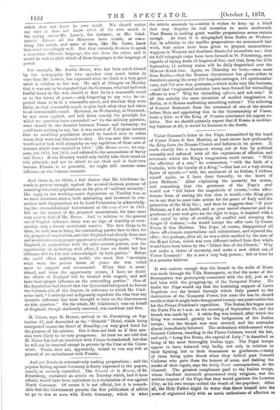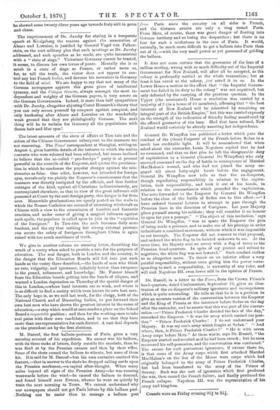It was curious enough that the breach in the walls
of Rome was made through the Villa Buonaparte, so that the name of the Buonapartes was grotesquely connected with the fall, just as it had been with the propping-up, of the Temporal Power. No doubt the Pope would say that the hesitating support of Louis Napoleon was the breach through which Italy passed to the destruction of the Temporal Power, but none the less he should recollect that it might have disappeared twenty-one years earlier but for the Prince-President's expedition. The Italian fire began near the Porta Pia at 5 a.m. on the morning of September 20, and the breach was made by 9. A white flag was hoisted, after which the firing was resumed, greatly to the indignation of the Italian troops ; but the breach was soon entered, and the surrender almost immediately followed. The enthusiasm which ensued when General Cadorna, standing in the Piazza Colonna, waved his hat, and said, " Long live Rome, the capital of Italy !" is described as being of the most thoroughly Italian type. The Papal troops appear to have behaved very badly, not only in relation to their fighting, but to their demeanour as gentlemen,—many of them being quite drunk when they defiled past General Cadorna who gave them the honour of arms, and dashing the smoke of their cigars, says the Daily News' correspondent, at the General. The greatest compliment paid to the Italian troops, whom Cardinal Antonelli pronounced truly religious, was the written request of the Pope that they would garrison the Leonine City, as his own troops excited the wrath of the populace. After all, the Holy Father might do worse than throw himself into the arms of organized Italy with as much enthusiasm of affection as be showed some twenty-three years ago towards Italy still in germ and chaos.































 Previous page
Previous page